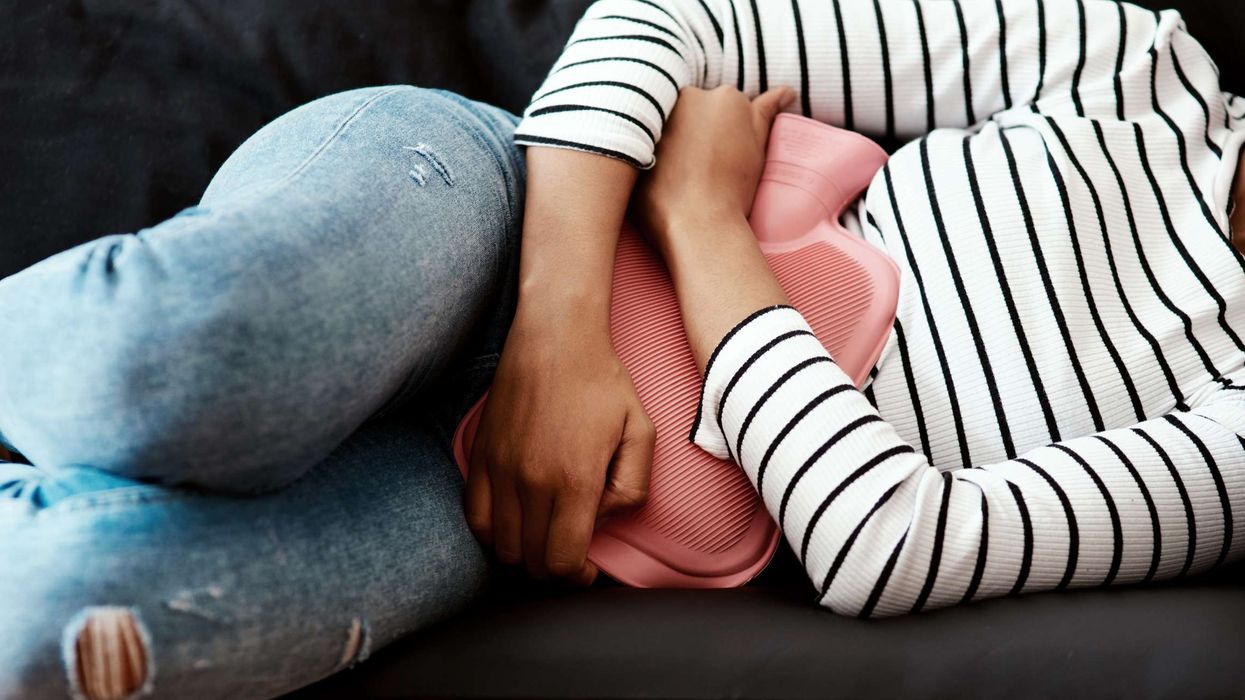For many women the monthly menstrual cycle is a traumatic experience with period pain, heavy blood loss and mood swings, and routine activities like going to work becomes a challenge.
A new report by Evana and Ultravana, 'Don’t Go With the Flow’, stated that one in three women (33 percent) are tearful when they have their period.
During this period, 24 percent have low sex drive, and 17 percent admitted that it takes a toll on their relationship, with some even claiming they had to part ways with their partners.
Going to work also becomes challenging, with one in five women saying they have taken leave due to period issues.
Dr Nisa Aslam, one of the authors of the report, said, “Younger women are most deeply impacted by period problems, with 73 percent having taken time off work or education because of disruptive periods, compared to 49 percent of older women.
"Overall, one in five women (21 percent) have also cancelled social plans because of their period, so it’s no surprise then that 51 percent of women feel they sometimes miss out on things because of their menstrual cycle."
In fact, 66 percent of women say that period pain is their most common period ailment.
Over half (56 percent) say mood swings are an issue, while 48 percent note that leaking onto their underwear is common and 48 percent said they feel bloated during periods.
Tender breasts, headaches and migraines are the other issues faced by women.
Eight out of ten women (81 percent) have experienced an embarrassing leak at some time and sadly, more than a third (35 percent) have stayed home rather than run the risk of a bleed through clothes.
Emotional toll
Periods can also take an emotional toll. Over a third of women (35 percent) reported feeling self-conscious, while 28 percent noted that they were anxious about their periods.
One in five (21 percent) say they get embarrassed about their period, and one in three (33 percent) said they felt dirty or unclean.
The report's co-author, Dr Janine David, said, “On average, a woman spends seven years menstruating over her lifetime, which could mean that seven years in total is spent trying to navigate the challenges of periods. Nearly half (49 percent) of women wrongly believe they have to accept period problems, but that simply is not true.”
Dr Nisa said that women suffer in silence. “While 73 percent understandably do not feel ‘very comfortable’ discussing menstruation with a doctor, it’s surprising that only two in five women (40 percent) report feeling ‘very comfortable’ discussing periods with their mother or a female friend.”
Pharmacist, Sukhi Basra noted: “There can be many reasons why a woman may not want to discuss her menstrual health with a professional; it could be religious, it could be due to embarrassment or shame or as the data has found out, it could be due to the belief that nothing could be done. That’s what 28 percent of women believe."
She, however, felt help was available and wants more women to seek help and advice on period health from healthcare professionals.
Heavy periods
Dr Janine said that while 20ml to 90ml of blood loss is ‘normal’. But some signs may indicate that their period may be heavier than normal.
They include periods that last over a week, the necessity to change pads or tampons every couple of hours, and blood leaks despite wearing period protection.
Evana and Ultravana offer effective over-the-counter treatments for heavy menstrual bleeding and period pain.
Dr Janine said, "The active ingredient in Evana is tranexamic acid, an anti-fibrinolytic medicine, which makes your blood stickier. During menstruation, blood in the lining of the womb binds together to form plugs, which slow the loss of blood during a period.
"However, in some women, these plugs don’t stay in place for long enough, and this causes heavy bleeding. Tranexamic acid works by slowing the breakdown and shedding of these plugs, and thus reducing blood flow.”












